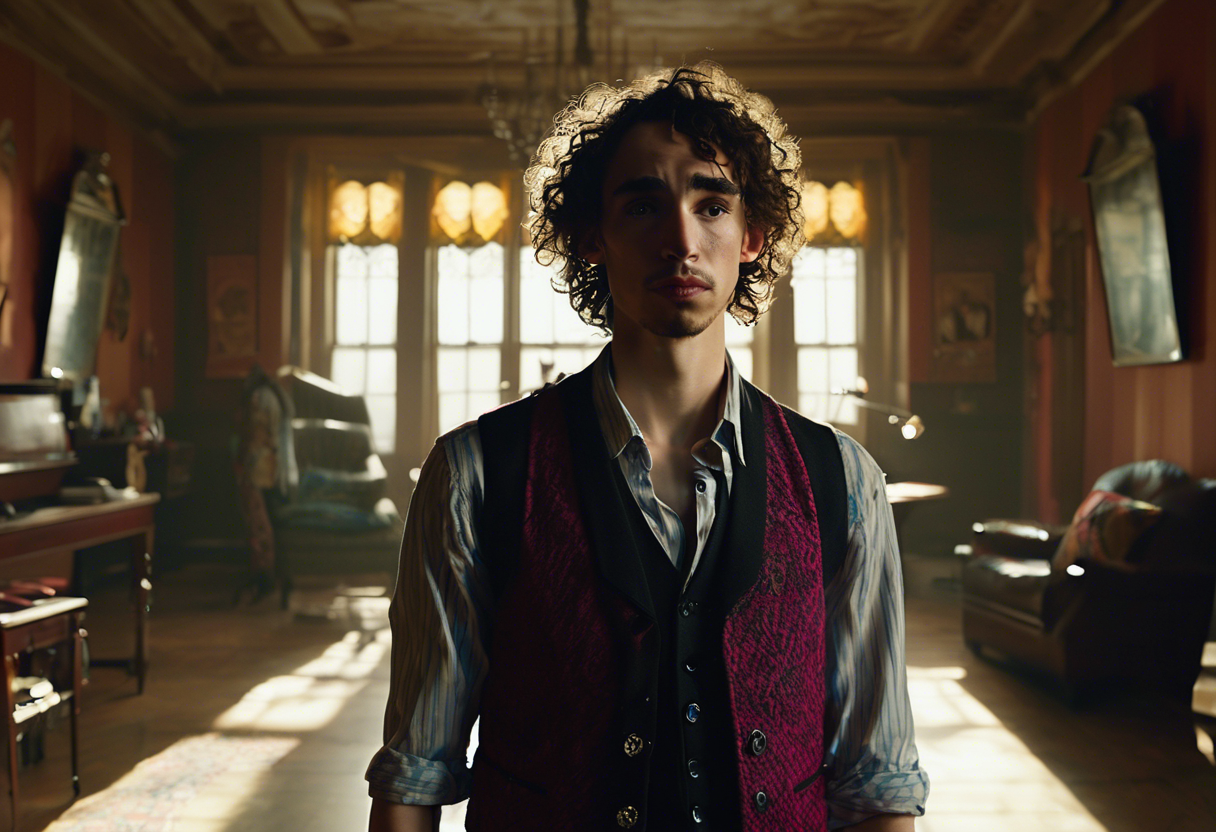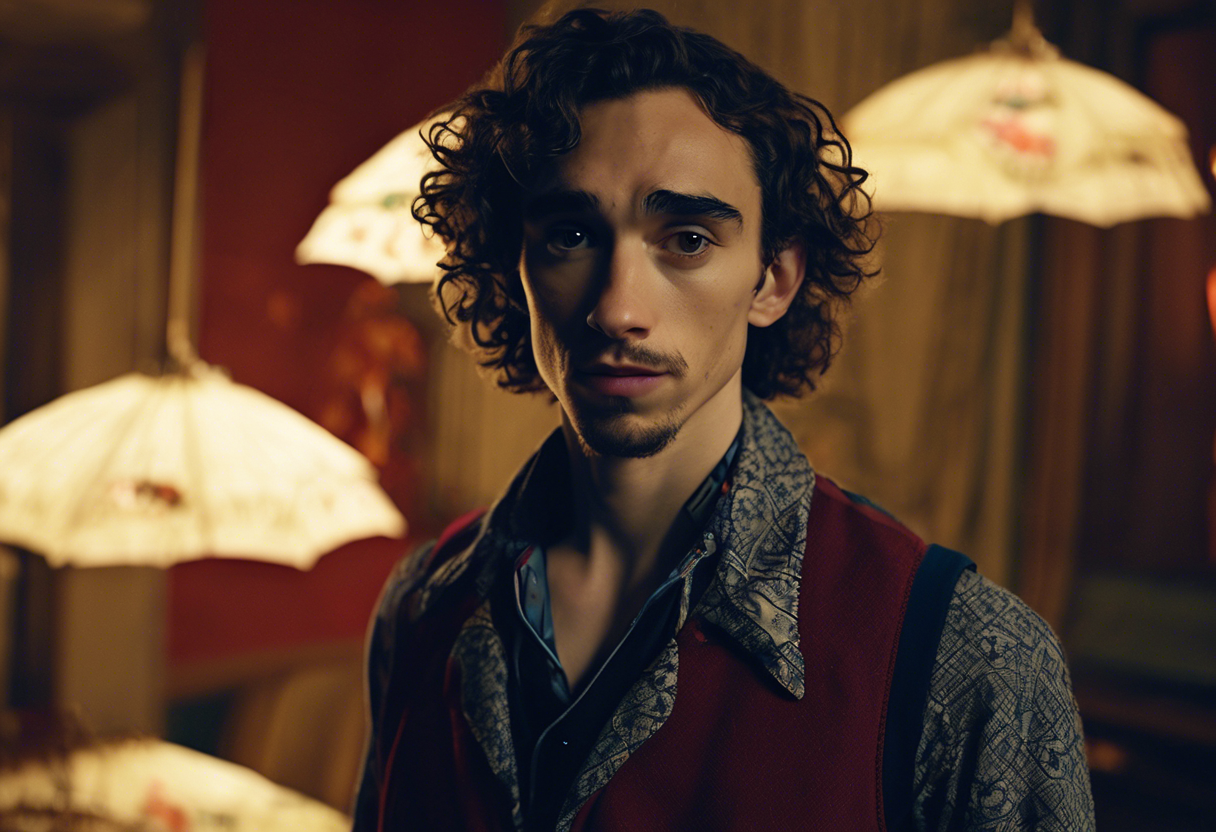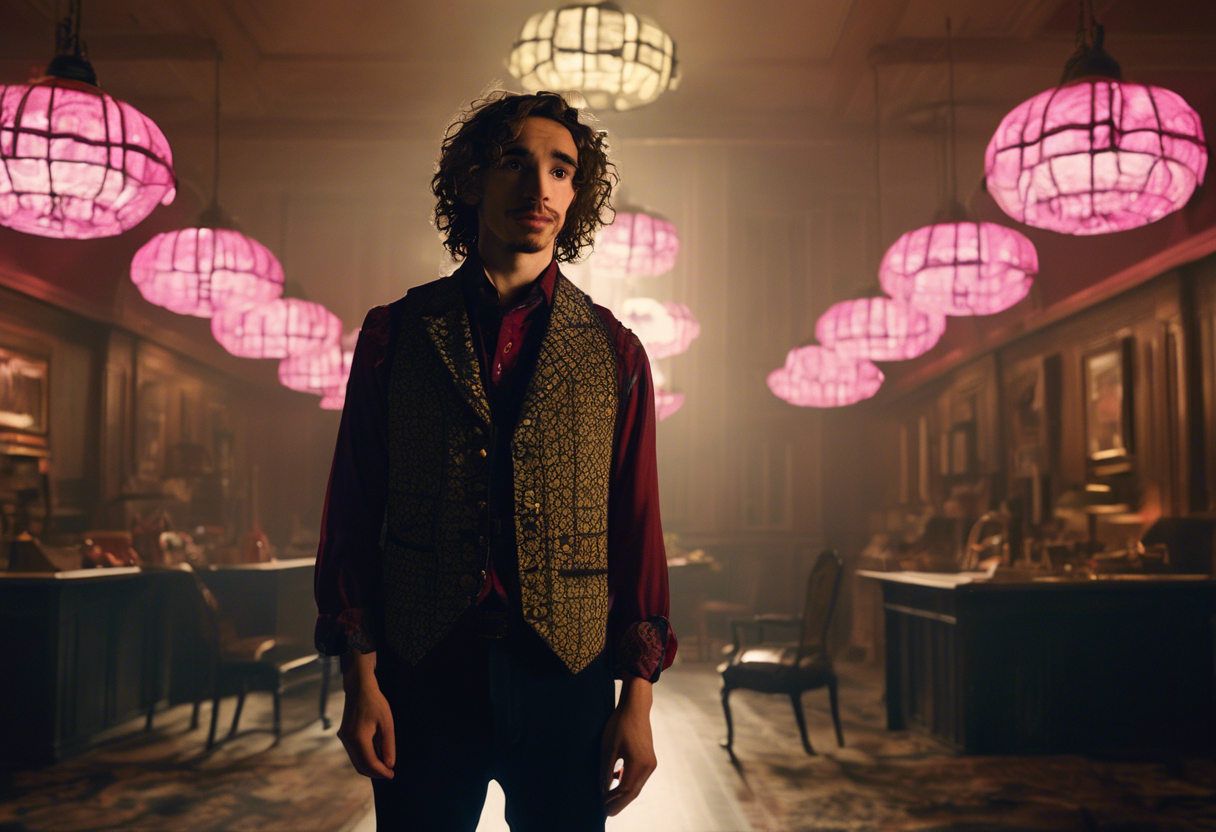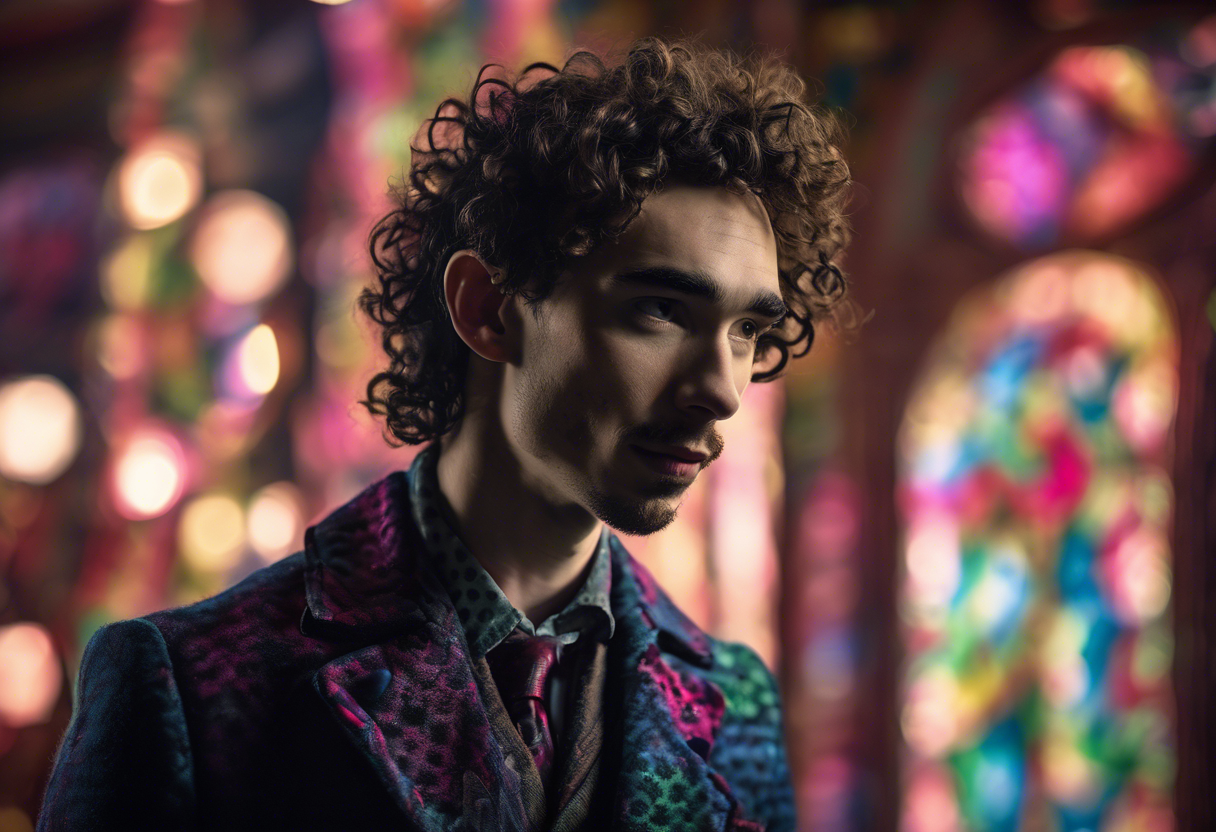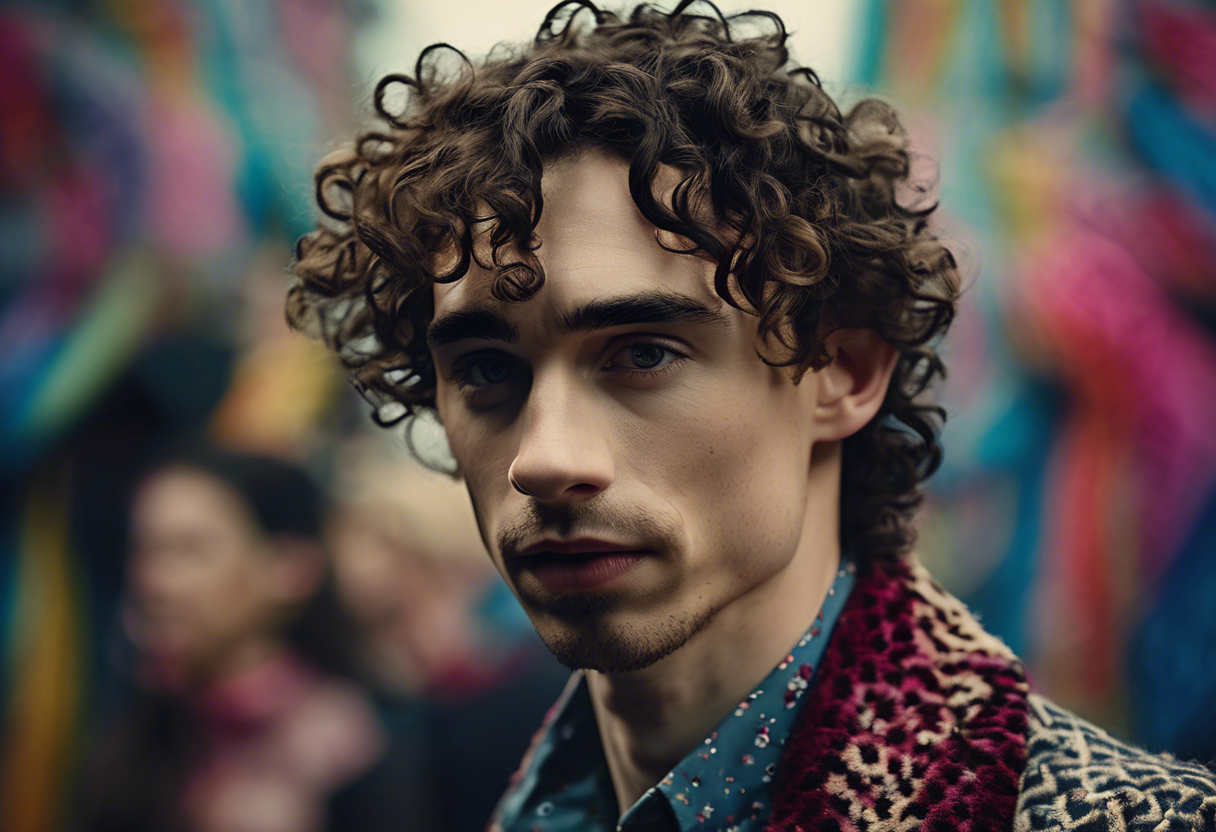Contents
Klaus Hargreeves: The Complex and Charismatic Member of The Umbrella Academy
Introduction
Klaus Hargreeves, originally known as Number Four, is a pivotal and enigmatic character in the Netflix series The Umbrella Academy, based on the comic book series by Gerard Way and Gabriel Bá. Born to an unknown mother and adopted by the eccentric billionaire Reginald Hargreeves, Klaus is one of seven superpowered siblings who were trained to save the world but ultimately disbanded.
Klaus’s origins are marked by trauma and neglect, which significantly shape his personality and actions throughout the series. His defining traits include a hedonistic lifestyle, a penchant for humor and sarcasm, and a deep-seated fear of his own powers. These characteristics not only make him a compelling character but also connect him to broader literary traditions of the troubled and rebellious hero.
Role in the Series
Klaus’s storyline in The Umbrella Academy is intricate and emotionally charged. At the beginning of the series, Klaus is introduced as a fresh-out-of-rehab addict who quickly relapses into his old habits. His addiction is a coping mechanism for the emotional turmoil and childhood trauma he endured, particularly the suppression of his powers by his father and the constant presence of the dead, whom he can communicate with but cannot control [4][5].
Throughout the series, Klaus’s journey involves confronting his past and learning to harness his powers. He forms crucial relationships with his siblings, especially Diego and Five, and plays a key role in unraveling the mysteries surrounding their family and the impending apocalypse. His quick thinking and ability to come up with stories on the fly often help the team in critical situations, such as when he and Five infiltrate a facility to gather information [3].
Klaus’s relationships with other characters are multifaceted. His bond with his siblings is complex, marked by both affection and resentment. He is particularly close to Diego, with whom he shares a deep emotional connection. His interactions with his father, Reginald Hargreeves, are fraught with tension and rebellion, reflecting his desire to escape the expectations placed upon him [2][5].
Character Analysis
Klaus’s personality is a blend of carefree individualism and deep-seated emotional pain. He is a fun-loving and hedonistic individual who rebels against the responsibilities and expectations imposed by his father. This rebellion is a coping mechanism for the trauma he experienced in his childhood, which has left him emotionally damaged and afraid of his own powers [2][4].
As an ENTP personality type, Klaus is characterized by his dominant Ne (Extraverted Intuition) trait, making him easily distractible, quick-witted, and adept at coming up with spontaneous stories and remarks. This trait often leads to humorous and sarcastic interactions, but it also means that his siblings frequently dismiss him as unreliable [3].
Despite his flaws, Klaus is a compelling and relatable character due to his vulnerability and genuine desire for connection and understanding. His addiction and self-destructive tendencies are symptoms of his deeper emotional struggles, making him a sympathetic figure. Throughout the series, Klaus undergoes significant development, gradually confronting his fears and learning to control his powers, which adds depth to his character [4][5].
Themes and Symbolism
Klaus Hargreeves embodies several key themes in The Umbrella Academy. One of the most prominent themes is the struggle with identity and the consequences of trauma. Klaus’s journey is a metaphor for the search for self and the attempt to overcome the scars of the past. His powers, which allow him to communicate with the dead, symbolize the weight of history and the inability to escape one’s legacy [5].
Another significant theme is the critique of patriarchal authority and the consequences of neglectful parenting. Klaus’s relationship with his father highlights the damage caused by Reginald Hargreeves’s cold and manipulative behavior. This dynamic serves as a commentary on the broader societal issues of parental responsibility and the impact of childhood trauma on adult life [2][4].
Cultural Impact
Klaus Hargreeves has had a significant cultural impact since the series’ release. His character has resonated with fans due to his relatable struggles with addiction, mental health, and identity. The portrayal of Klaus by actor Robert Sheehan has been particularly praised for its nuance and depth, making Klaus one of the most beloved characters in the series [4].
In terms of cultural influence, Klaus’s character has contributed to a broader conversation about mental health and addiction. His story serves as a representation of the complexities of these issues and the need for empathy and understanding. Additionally, his character has inspired fan art, fan fiction, and other creative works, further solidifying his place in popular culture.
Critical Reception
Klaus Hargreeves has received widespread critical acclaim for his complex and compelling portrayal. Critics have praised Robert Sheehan’s performance for bringing depth and nuance to the character. The character’s development throughout the series has been particularly noted, with many praising the show’s handling of sensitive topics such as addiction and mental health [4].
However, there have also been some controversies surrounding the representation of addiction and mental health. Some critics have argued that the show sometimes trivializes these issues or uses them as plot devices. Despite these criticisms, Klaus remains one of the most well-received characters in the series, with his story arc being a highlight for many viewers.
Legacy
Klaus Hargreeves’s enduring appeal lies in his multifaceted personality and the relatable nature of his struggles. His character has inspired a new wave of complex and flawed heroes in contemporary media, reflecting a shift towards more realistic and empathetic portrayals of mental health and addiction.
In contemporary discussions, Klaus’s character continues to be a point of reference for conversations about trauma, identity, and the importance of empathy. His story serves as a reminder of the lasting impact of childhood experiences on adult life and the need for understanding and support in overcoming these challenges.
References
- https://www.charactour.com/hub/characters/view/Klaus-Hargreeves.The-Umbrella-Academy
- https://hero.fandom.com/wiki/Klaus_Hargreeves
- https://practicaltyping.com/2021/07/23/the-umbrella-academy-klaus-hargreeves-entp/
- https://www.youtube.com/watch?v=2O4r6HghFnk
- https://umbrellaacademy.fandom.com/wiki/Klaus_Hargreeves_(Netflix)

